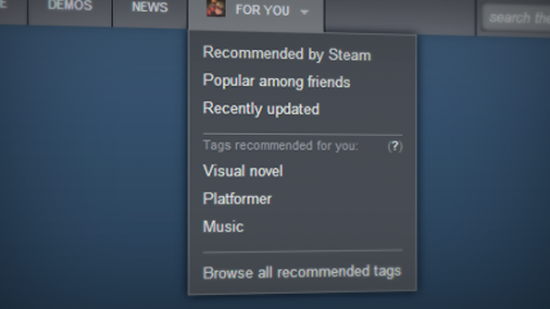What was previously a tidy marketplace became a raucous bazaar overnight last week, as Steam’s new tagging system offered a way for players to make their opinions known to developers and potential buyers alike. Popular protest tags pushed themselves onto the sales pages of games like Fez (“diva dev”), DmC (“#TooEdgy4U”), and Godus (“scam”, and “diva dev”, again).
The less savoury end of the spectrum saw games like Gone Home subjected to pun-based homophobia. It’s not in Valve’s nature to moderate, but they’ve found the next best user-driven equivalent – in-client snitching.
A new reporting option is now visible next to popular tags on game pages. Users can click the flag icon to report and downvote a tag.
Valve will then remove the offending phrase, if one of four new criteria apply: offensive/abusive; not appropriate for the product; spoiler; or simply not helpful.
What’s more, tags will now need to be applied by a larger majority of users before they show in the ‘popular’ section, which will make the kind of groundswell support that carried comedy tags to the front of the store last week a little more difficult.
“Please keep the feedback coming,” write the Steam dev team. “We’re continually working to improve the feature.”
Let’s hope the changes don’t see the end of entertaining but questionably useful tags like ‘Nanomachines, son’.
It’s worth noting that Valve still have no intention of directly tackling tags which might dissuade users from purchase – instead advising upset developers to address a potential “mismatch between how you perceive your game, and how your game is perceived by customers”.
tldr: it’s your problem, devs. Although I don’t think there’s any harm in encouraging other developers to take on the data-driven approach that’s put Valve where they are, do you?
Thanks, Eurogamer.
